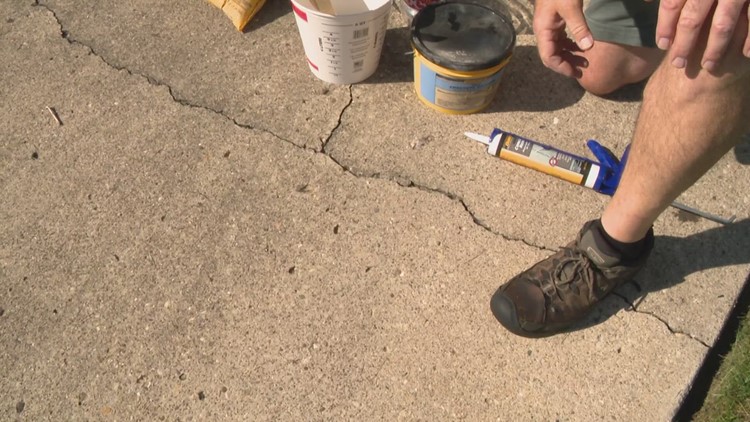The Better Business Bureau is warning that a driveway paving scam is costing consumers thousands of dollars.
The way it works is that a contractor will show up at their victim's door claiming they were doing work in the area and noticed the condition of their driveway. The BBB said scammers may claim they have leftover supplies and can offer the victims a discounted rate with a percentage of the fee paid upfront.
Once the payment goes through, the contractor may disappear completely and be impossible to contact.
In other instances, victims have reported poor or unprofessional work and not being able to get in touch with the contractor.
Here's what one consumer told the BBB:
"An individual introduced himself saying he was doing some work for the neighbor and offered to repair and seal our driveway and we agreed. We paid them $3,000 for which they provided us a 10-year guarantee claiming we could call them at any time. We noticed that the front steps were not level and the driveway sealing was poorly done. They answered one time and said they would come the next day but they never did. Repeated phone calls were unanswered, and their email address was undeliverable."
So how can you protect yourself? Here's what the BBB says you should do to avoid these types of scams.
- Be wary of unsolicited offers. Most scams involving contractors begin when a random contractor goes out of their way to offer you an estimate that was never requested. Be extra cautious if the estimate is "discounted."
- Research companies and contractors before you hire. Before you agree to hire a contractor and make payment, start with BBB.org. If the contractor has multiple negative reviews and complaints, don’t hire them. A simple internet search often reveals companies or individuals involved in fraudulent activities or that provided unsatisfactory work to previous clients. Read BBB's tips on hiring a reliable contractor.
- Get everything in writing. Ask for an estimate in writing before payment is even discussed. Don’t let a contractor start working on a project until a written, signed contract outlining start and complete dates, a detailed description of the work, material costs, payment arrangements, and warranty information is provided. Read more about what to ensure is included in your home improvement contract.
- Stagger payments. Most contractors will require a percentage of the total price upfront, but it should never be the full price before the work has begun. Instead, agree to stagger payments so that work can be inspected at various project stages.
- Use safe payment methods. Paying with a credit card provides peace of mind since the credit card company will help you if the company is fraudulent. If you use a check, write it to a company, not an individual. Paying cash or using an electronic wallet app is risky since there is no way to stop the payment or get some money back if anything goes wrong.



